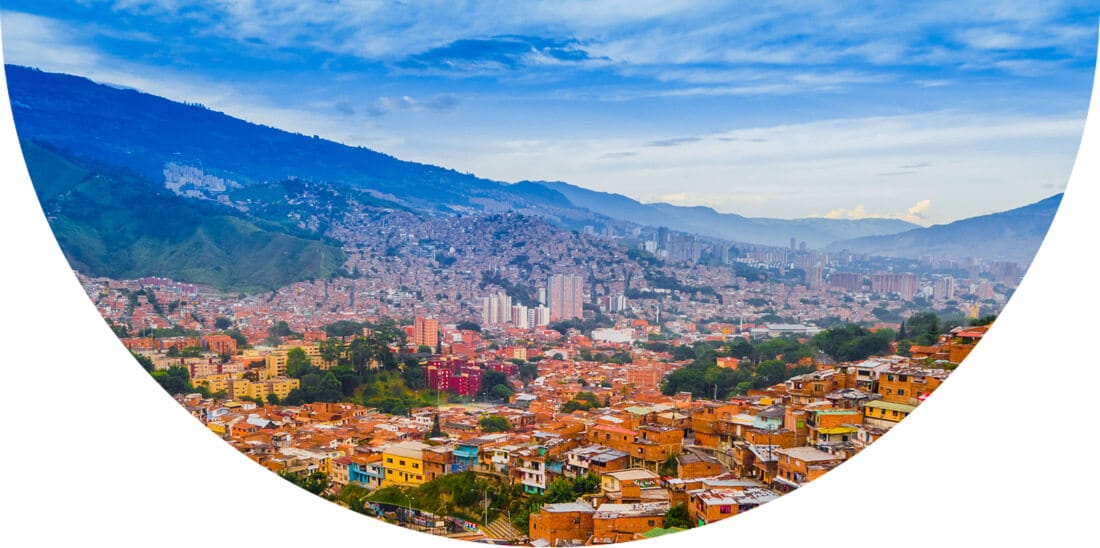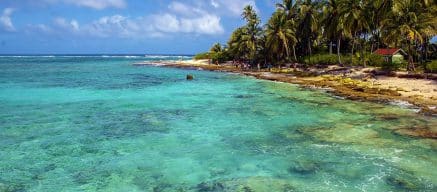West Nile virus (WNV) is spread by mosquitoes in many countries. There are usually no symptoms, although some people develop mild flu-like symptoms, nausea and skin rash. The virus is not contagious and should get better without any treatment.


Travel Vaccinations for Colombia
Recommended Vaccines for Colombia
The level of protection needed depends on your medical history and travel itinerary. Book now to get a personalised recommendation from our specialist travel nurses. The consultation costs £20 plus any vaccines you decide to take.
Flexible appointments with no upfront payment
Book Now
Destination Information for Colombia
Perched at the Northern tip of South America, Colombia is known for rainforests, the mountains of the Andes and its several, excellent coffee plantations. Even though Colombia is still in recovery from decades of brutal civil war, the country’s natural beauty makes it a popular travel destination for many tourists. There’s something here for every kind of traveller, whether you’re looking for sunbathing opportunities, history, culture, nightlife or stunning natural beauty, visiting Colombia caters to it all.
The capital of Colombia, Bogota, is one of South America’s most fashionable and cosmopolitan destinations. The city has a reputation for gangs and drug cartels, but in reality, this is a vibrant and fascinating mix of traditional culture and a modern hub of activity. There are many other pretty colonial towns in Colombia, as well as historic settlements, including the mysterious ‘lost city’ – or Ciudad Perdida. The ‘lost city’ is said to have been built in the Colombian jungle by Tayrona Indians between the 8th and 14th centuries.
From mountainous scenery to brilliant tropical beaches, Colombia is a country of contrasts and variety. The climate and temperature changes throughout the country, and you can find snow-capped peaks, alpine lakes, rocky deserts and lush jungles, depending on your specific destination and your personal taste. In general, the dry season runs from January to March, offering sunny skies and warm temperatures for the Columbian high season.
Before you begin your exploration of Colombia’s rainforests and cities, you should ensure you are up to date with advice and vaccinations. There is a risk of yellow fever transmission in parts of Colombia with certification requirements. Food and water borne disease such as Hepatitis A and Typhoid are common so get vaccine protected along with Diphtheria, Tetanus and Polio. Other vaccines will vary but rabies and Hepatitis B should be considered for some people, depending on where you visit and what you do. The country is low risk for Malaria, but some travellers may be more susceptible so book a consultation to discuss this at one of our travel clinics to see what you may need.
Infections and Outbreaks frequently change from country to country and by attending our clinics you will be given the most up to date clinical and safety advice from our team of specialists. Our advice to you often includes aspects such as:
- Food and water hygiene
- Insect and animal bite avoidances
- Personal safety
- Sexually transmitted infections
- Sun protection
- Altitude sickness
Malaria and regions within country:
There is a high risk of P.Falciparum malaria in the areas of Antioquia, Choco, Cordoba, Guaviare, La Guajira, Narino, Putumayo and Vichada. There is a variable risk of P.Vivax malaria in areas below 1600m, with the exception of the city of Cartagena. There is low to no risk in Medellin and Bogota.
Non Vaccinated Diseases
Additional Health Risks Information for Colombia
Columbia has struggled with a reputation for terrorism and violent crime for many years, although, nowadays, many areas of the country are much safer. Despite increased safety, risks are still present, and personal safety can never be taken for granted. Be aware of travelling after dark, always travel as part of a group and avoid isolated rural areas especially at night. If you’re travelling with luggage, keep it on your person at all times, and avoid carrying valuables or large sums of money if you can. If you’re hailing a taxi in, do so from a signed taxi stop.
Drug tourism is an unfortunate reality in Colombia. However, although drugs are readily available, they remain illegal. There have been reports of drugs being planted on tourists, so be vigilant and don’t carry a bag out of the country for anyone else.
Aside from the risks to personal safety, Columbia is a beautiful country, and its vast landscape can be enjoyed in many ways. If you’re taking part in any extreme sports or walking or trekking at high altitude, make sure your clothing and kit are suitable for the activity. Also, ensure, and that your travel insurance is adequate for the sports you plan to do. Be aware of the signs and symptoms of altitude sickness, and ensure you know how to summon assistance in the event of an emergency. Health care in major cities is generally good, but in rural areas, it can be difficult to find
Columbia is currently experiencing an outbreak of the Zika virus, which can cause birth defects. Women who are pregnant or planning to become pregnant should not travel to Columbia.
Latest Colombia Articles
Visit San Andres, the jewel of Colombia
When thinking of Colombia, one does not automatically think of it as a beach holiday destination, yet the Colombian island of San Andres is an outstanding example of tropical paradise. The idyllic island of San Andres Closer to Nicaragua than …
North Colombia: Exploring the Caribbean Coast
Colombia is fast becoming one of the most popular countries in South America. Its history and reputation of violence and drugs related crime is subsiding, and it has plenty of sights and attractions to appeal to visitors. From vast cities …





